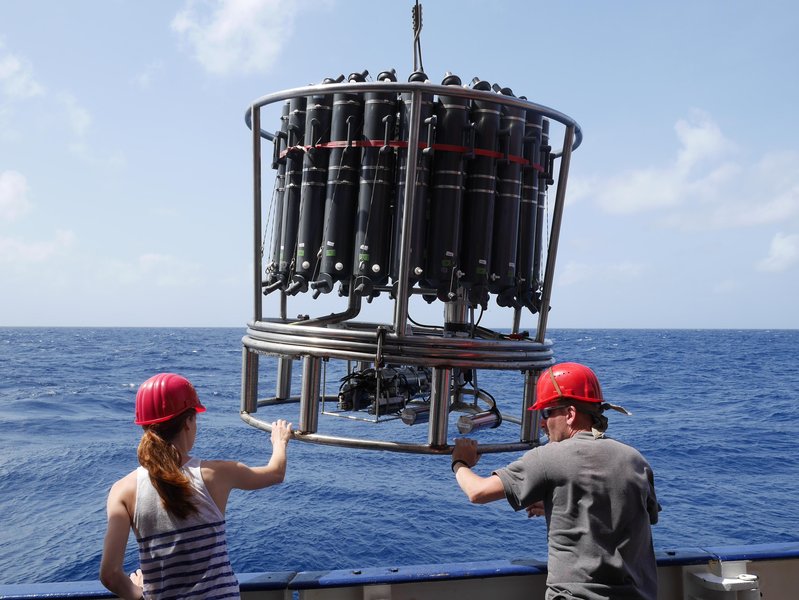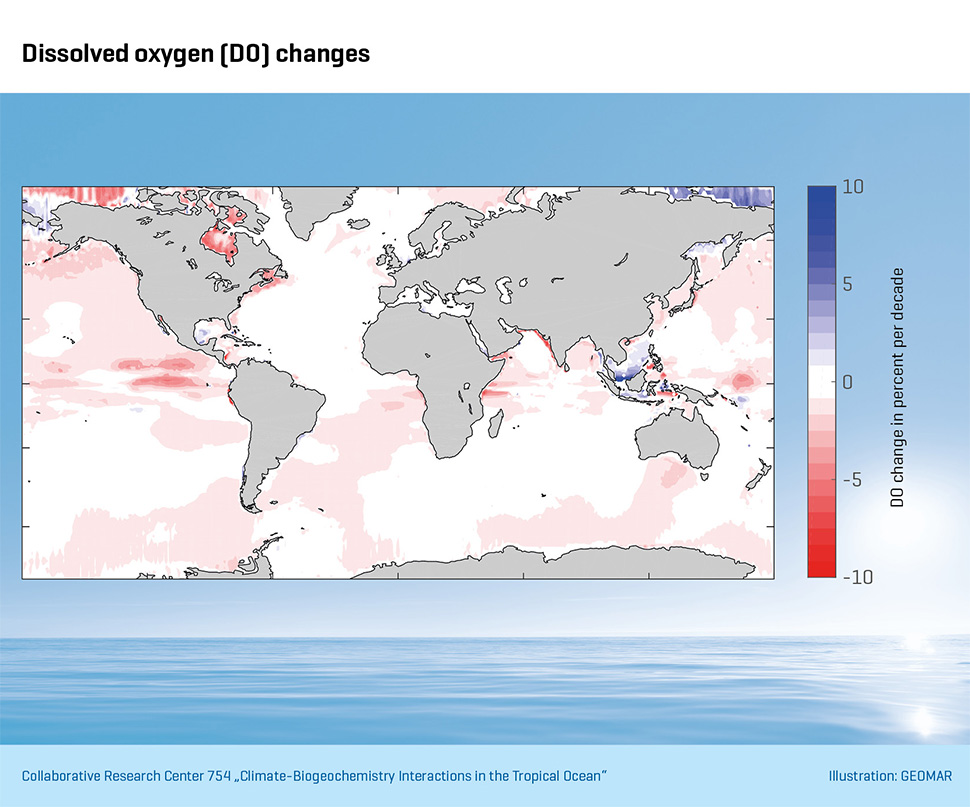
17th February 2017 Oxygen levels in the world's oceans have fallen 2% since the 1960s A study published in the journal Nature finds that oxygen levels in the oceans have declined by 2% globally in the last 50 years, due to warming and stratification.
Oxygen is an essential necessity of life on land. The same applies for almost all organisms in the ocean. However, the oxygen supply in the oceans is threatened by global warming in two ways: warmer surface waters take up less oxygen than colder waters. In addition, warmer water stabilises the stratification of the ocean. This weakens the circulation connecting the surface with the deep ocean and less oxygen is transported into the deep sea. Therefore, models predict a decrease in global oceanic oxygen inventory of the oceans due to global warming. The first global evaluation of millions of oxygen measurements seems to confirm this trend and points to first impacts of global change. In the journal Nature this week, oceanographers from GEOMAR Helmholtz Centre for Ocean Research Kiel in Germany have published the most comprehensive ever study on global oxygen content in the world's oceans. It demonstrates that overall oxygen levels have dropped by more than 2% over the last 50 years. While 2% might not sound like much, the effects can be dramatic. "Just a little loss of oxygen in coastal waters can lead to a complete change in ecosystems – a small decrease in oxygen like this can transform from something desirable to very undesirable," said David Baker, a Professor at the University of Hong Kong's Swire Institute of Marine Sciences. "It's almost like the oceans are getting ready for a heart attack. You're essentially slowing the heartbeat of the ocean, and you're getting less oxygen to the ocean." "Since large fishes in particular avoid or do not survive in areas with low oxygen content, these changes can have far-reaching biological consequences," comments Dr. Sunke Schmidtko, lead author of the study. The researchers used all historic oxygen data available around the world for their work, supplemented it with current measurements and refined the interpolation procedures to more accurately reconstruct the development of the oxygen "budget". In some regions, previous research had already shown a decrease in oxygen.
"To quantify trends for the entire ocean, however, was more difficult, since oxygen data from remote regions and the deep ocean is sparse," explains Dr. Schmidtko. "We were able to document the oxygen distribution and its changes for the entire ocean for the first time. These numbers are an essential prerequisite for improving forecasts for the ocean of the future." The study also shows that, with the exception of a few regions, oxygen content decreased throughout the entire ocean during the period investigated. The greatest loss was found in the North Pacific. So-called "dead zones" are also multiplying – shallow areas where the water is so low in dissolved oxygen that most sea creatures can't survive. The global decline in ocean oxygen may worsen from 2% to 7% by the year 2100. "While the slight decrease of oxygen in the atmosphere is currently considered non-critical, the oxygen losses in the ocean can have far-reaching consequences because of the uneven distribution. For fisheries and coastal economies this process may have detrimental consequences," said co-author Dr. Lothar Stramma. "With measurements alone, we cannot explain all the causes," adds Prof. Martin Visbeck. "Natural processes occurring on time scales of a few decades may also have contributed to the observed decrease." However, the team says their results are consistent with most model calculations that predict a further decrease in oxygen in the oceans due to higher atmospheric CO2 concentrations and consequently higher global temperatures. "The oceans are really a mirror of human health – if they're sick and dying, then that's the future of humanity as well," said Baker.
---
Comments »
|









